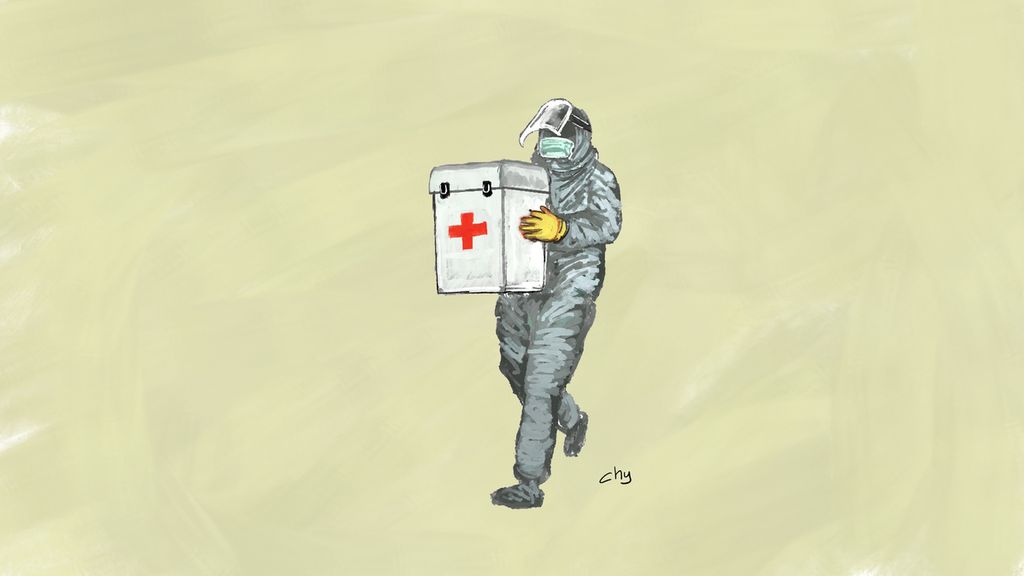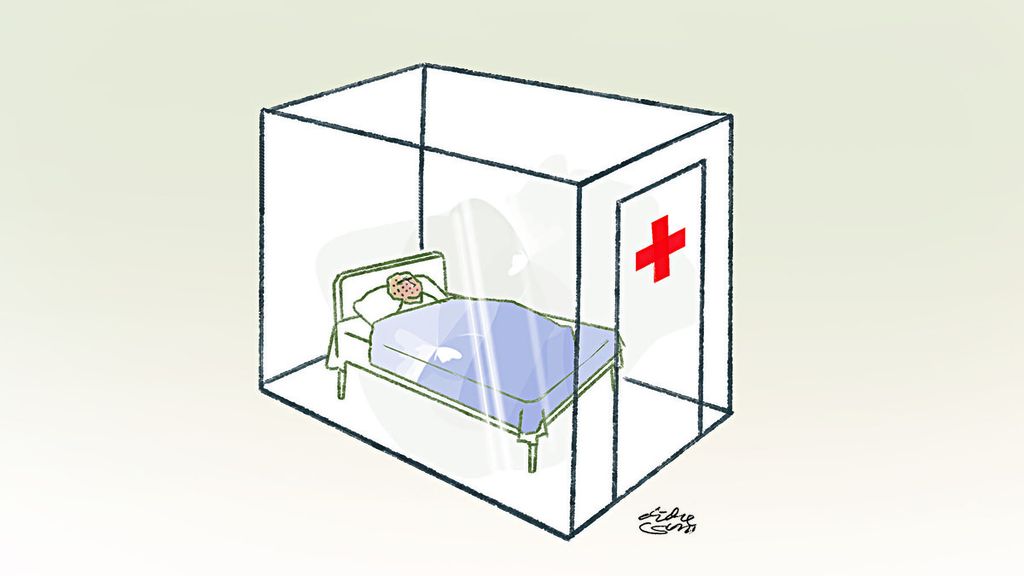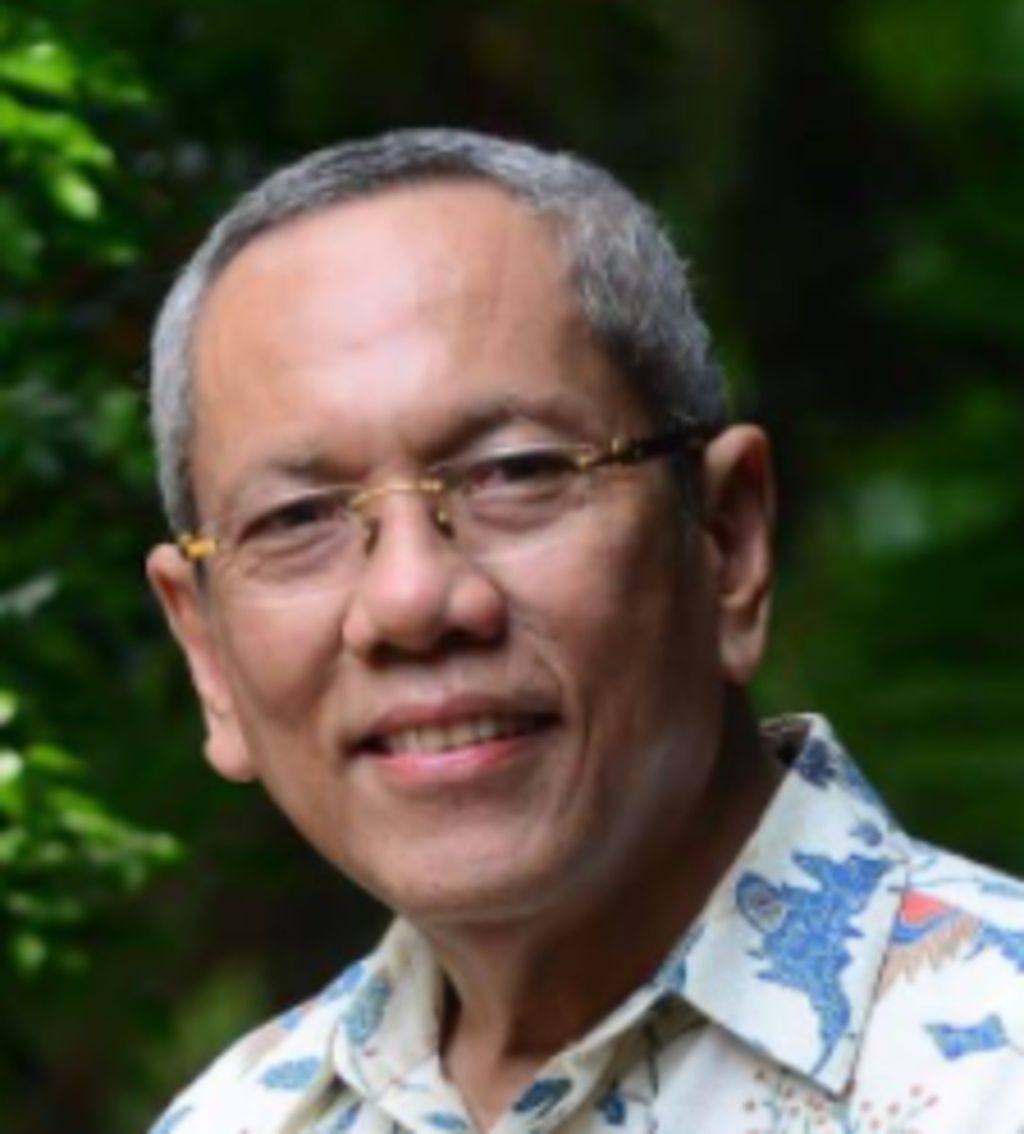Criteria for Monkeypox Vaccine
The WHO has declared monkeypox as the seventh public health emergency of international concern (PHEIC), which clearly shows that we need to be vigilant and take the appropriate steps, including vaccination.

The procurement of vaccines for the prevention of monkeypox in Indonesia has begun, following the recent detection of a confirmed case.
Health Minister Budi Gunadi Sadikin confirmed that the procurement of monkeypox vaccines had started following the special instruction of President Joko Widodo. In the beginning, the government would provide 10,000 doses of the vaccine to prevent the spread of the virus.
While awaiting the vaccines’ arrival, it would now be good to set a guideline on how and whom the vaccines will target.
The World Health Organization (WHO) has published "Vaccines and Immunization for Monkeypox: Interim Guidance" prepared by the Strategic Advisory Group of Experts (SAGE) Ad-hoc Working Group on smallpox and monkeypox vaccines. This is the WHO's first set of recommendations elaborating the criteria for monkeypox vaccination.
The WHO recommendation contains five important points of consideration that can be applied to prevent monkeypox in Indonesia.
PEPV and PPV
First, it is currently unnecessary and also not recommended to vaccinate the general population.
Second, it is recommended that post-exposure preventive vaccination (PEPV) be given to people who have been in contact with a confirmed case. The selected treatment is a second- or third-generation vaccine. PEPV should ideally be administered within the first four days after contact with a confirmed case or exposure to infectious material, or within the first 14 days if the contact is asymptomatic.
A study published in the Morbidity and Mortality Weekly Report (MMWR, 19/8/2022) scientific journal has shown that genetic material from the monkeypox virus were found on the surfaces of various tools and objects in the home of a confirmed case in Utah, the United States. The study tested samples taken from 30 objects in nine areas of the house, including clothing, chairs, blankets and door handles.
Of the 30 samples, 21 (70 percent) produced positive results in a polymerase chain reaction (PCR) test. The study then tried to culture the virus from the positive PCR tests in the lab, but this failed.
Also read:
> Global Emergency: Monkeypox Outbreak
Because our first confirmed case is also self-isolating at home, it is better to conduct research at the patient’s home after the isolation period has ended.
This form of research is appropriate in Jakarta, not only to gather data on a case in Indonesia, but also to publish the research results in an international journal. The goal is to enrich the global knowledge base so we can all control monkeypox better.
Third, it is recommended that primary preventive vaccination (PPV) be given to people at high risk of monkeypox. The criteria for who is at high risk is determined by each country and may include certain types of sexual behavior, health workers who handle monkeypox cases, laboratory workers who are involved with testing orthopoxviruses, clinical technicians who run monkeypox tests, diagnostics and others, in line with local circumstances.

It would be good if we define the at-risk group now, so they can receive the vaccine as soon as it is available.
Fourth, the vaccine rollout must be accompanied by strict surveillance, good tracing, increased public campaigns and risk communication, and appropriate pharmacovigilance (PV).
Fifth, selecting the type of vaccine for use in a particular country must be based on in-depth analysis of the risks and benefits. It is also good to collect data for researching the effectiveness of the monkeypox vaccine, which is not yet fully known scientifically.
Which vaccine?
We are still waiting to hear which monkeypox vaccine the Health Ministry will provide to fulfill the President's direction. The method of administration and the dosage will, of course, depend on which vaccine is selected.
On 9 Aug. 2022, the US Food and Drug Administration (FDA) issued emergency use authorization (EUA) for the JYNNEOS vaccine as intradermal injections for at-risk groups aged 18 years old and above. For at-risk people below 18 years, the injection is given subcutaneously, or under the layers of the skin. The vaccine is given twice, four weeks apart.
European Union countries are using the Imvanex vaccine. The vaccine in Europe has been selected based on an evaluation by the Committee for Medicinal Products for Human Use (CHMP), a special committee at the European Medicines Agency, which has been conducting scientific analysis since the end of June. It would be good if Indonesia also started in-depth scientific analysis immediately to determine which type of vaccine to use.
Two other vaccine products, LC16 and ACAM2000, which some countries are using to prevent monkeypox, should also be considered. In general, more research is needed to determine their efficacy and immunization course. However, the best way to prevent getting monkeypox is to avoid direct contact with patients.
Also read:
> Unexplained Severe Acute Hepatitis
> Preventing the Resurgence of Covid-19 Cases
Are the people who were vaccinated against smallpox before 1980 have immunity against monkeypox? There are several views on this matter. The virus that causes monkeypox belongs to the same genus as the virus that causes smallpox. This is the basis of the view that the smallpox vaccine given decades ago could still play a role in preventing monkeypox today.
On the other hand, Dr. Anthony Fauci, infectious diseases advisor to the US government, said the protection offered by the smallpox vaccine can vary from person to person in terms of duration, so it cannot be guaranteed that people who have been vaccinated for smallpox will be protected against monkeypox today.
The WHO has said that several observational studies showed that the smallpox vaccine has 85 percent effectiveness in preventing monkeypox. This means that at least 15 percent remain unprotected. A country with a large population like Indonesia will also have a large number of people who are not protected. The WHO has also said that people who have had the smallpox vaccine and then contract monkeypox will have milder symptoms.
The WHO has declared monkeypox as the seventh public health emergency of international concern (PHEIC), which clearly shows that we need to be vigilant and take the appropriate steps, including vaccination, which must be prepared starting now. Don’t delay!

Tjandra Yoga Aditama
Tjandra Yoga Aditama, Director of postgraduate programs at YARSI University, former director of WHO Southeast Asia, former director general of P2P and former head of Balitbangkes
This article was translated by Kurniawan Siswo.